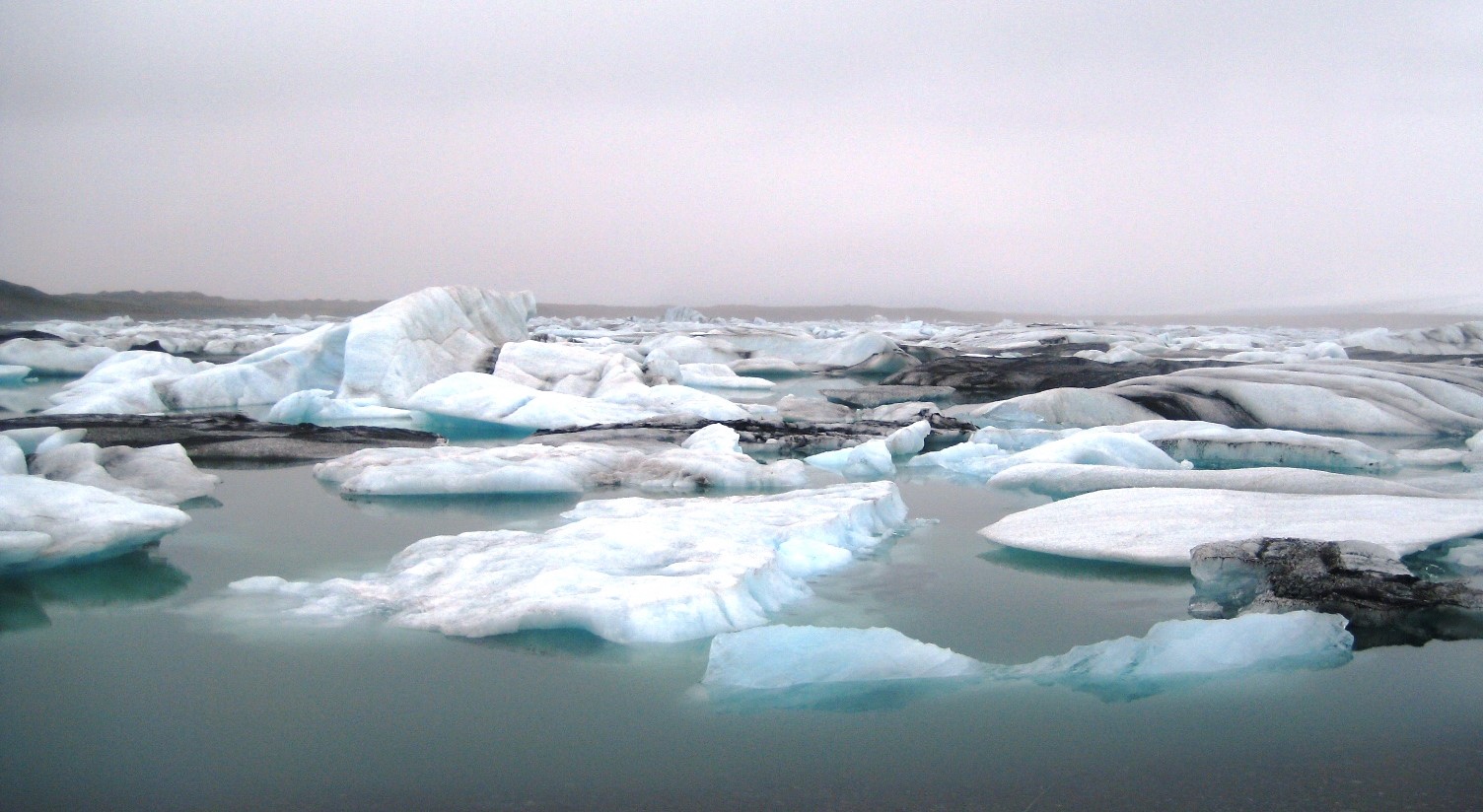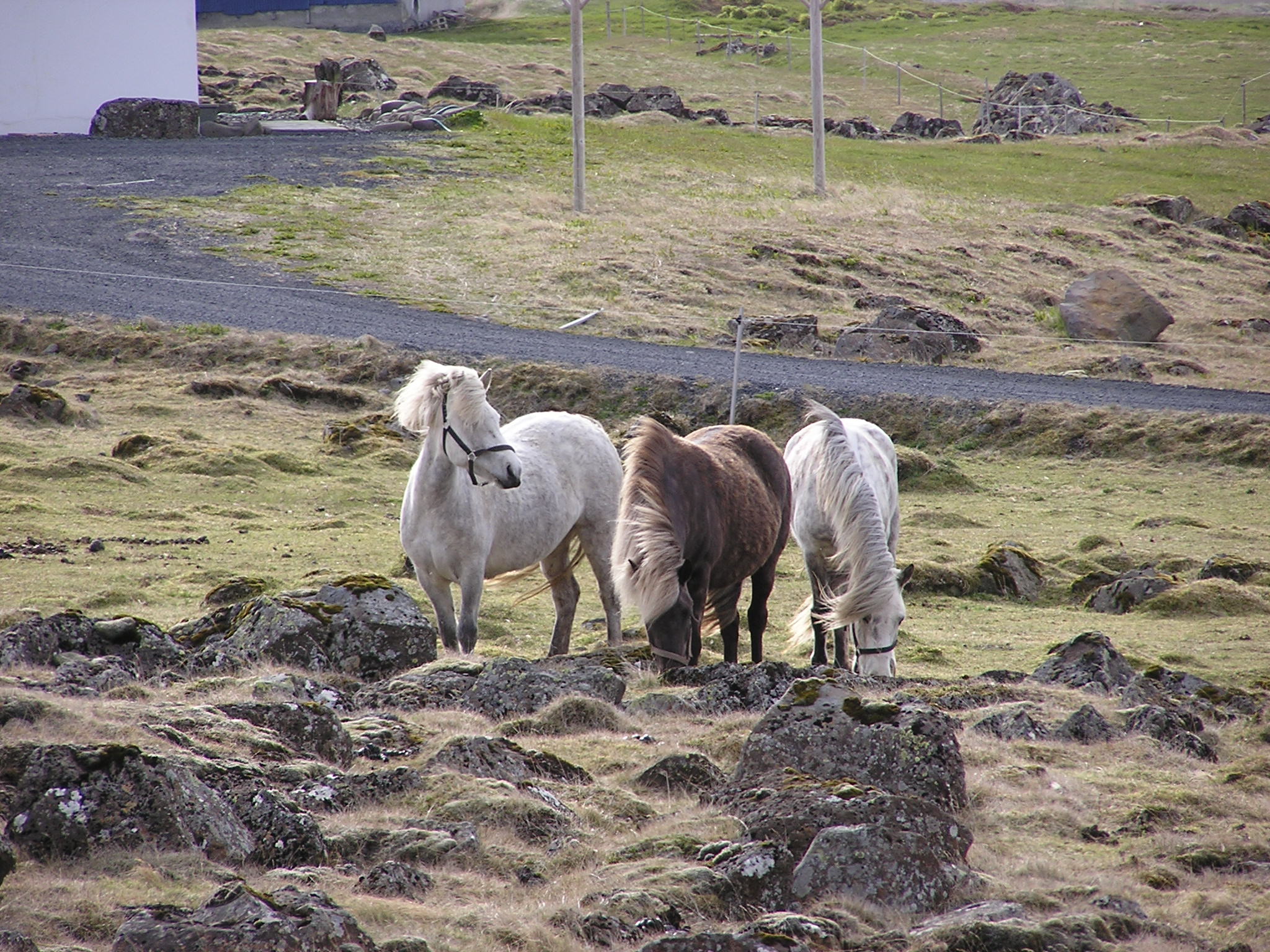Return to the search form Return to your search results
SIT Iceland Renewable Energy, Technology & Resource Economics
Fast Facts
Sessions Offered:
Summer
Location:
Akureyri, Iceland
Credit:
Transfer
Eligibility:
-2.5 GPA
-Good academic and disciplinary standing
-Previous coursework in environmental science or related fields
Application Due:
March 4
Program Cost:
Click the Application tab
SIT was founded on the idea that cultural exchange leads to positive social change. Because of this belief, each of their programs is centered around one of seven global issues: Climate & Environment; Development & Inequality; Education & Social Change; Geopolitics & Power; Global Health & Well-being; Identity & Human Resilience; and Peace & Justice. As a climate and environmental issue, students explore natural energy sources and technology's impact on the environment and economy in Iceland. Students learn from local experts: academics, activists, businesspersons, artists, community leaders, and government officials. Access to local perspectives and knowledge gives students a greater understanding of the issues and innovations within their host communities. The program combines classroom study with hands-on work in the field.
Academic Program
.jpg)
The key topics of study for this program include; hydroelectric and geothermal power; wind, solar, tidal and biomass energy; alternative fuels; and resource economics and policy. Sustainable energy design and implementation within the larger sociocultural, economic, and environmental contexts is also studied. The geology behind energy usage and the importance of its sustainable utilization is another key topic.
For more information, see SIT's Program Webpage
Cultural Activities
Students will explore Iceland's amazing varied landscapes from glaciers, to volcanoes, fjords, lava flows, rugged coastline, and waterfalls.
Program Dates
Summer 1 - Early June to mid-July
Summer 2 - Mid-June to late July
For more information
Steps to Studying Abroad
- Before initiating an application with SIT students must complete a Discover Study Abroad session at the University of Iowa.
- After completing the Discover Abroad session, students will receive an email with their study abroad advisor assignment.
- Once assigned, students must meet with their study abroad advisor to receive program application instructions.
Study Abroad
1111 University Capitol Centre
Iowa City, IA 52242
Phone: 319-335-0353
Email: study-abroad@uiowa.edu
Ísafjörður
Ísafjörður, which means, “ice fjord”, is located on the peninsula of Vestfirðir (Westfjords). The town has a population of about 2600 inhabitants and is the largest town of the peninsula. The climate is tundra with average high temperatures of 51 and 54 degrees Fahrenheit in June and July respectively. Ísafjörður is a major point of access to the nature preserve on the Hornstrandir Peninsula which is an uninhabited wilderness area.
Iceland
The country of Iceland is known for its curious juxtaposition of ice and fire in the form of glaciers and volcanos that produce geothermal geysers. Iceland lies in the North Atlantic between Norway and Greenland and just south of the Arctic Circle. Given its position in longitude the country is inhabitable because of the warming influence of the Gulf stream. The country was first settled by Norwegian-Norse chieftain Ingólfr Arnarson in the year of 874. Today it is a democratic state with a market economy and a population of more than 325,000 people.
US Department of State Country Information
The US Department of State provides safety and security information for every country of the world to help you assess for yourself the risks of travel. Each country information page contains a Travel Advisory, Alerts, and other important details specific to that country that could affect you.
Pay close attention to the entry and exit requirements, local laws and customs, health conditions, and other details to help decide whether traveling to any given country is right for you. Non-US citizen travelers may also wish to seek guidance from the embassy of their country of citizenship. The UI International Travel Policy for Students addresses restrictions on student travel to high-risk locations and engagement in high-risk activities abroad.
Living Arrangements
.jpg)
During their time in Iceland, students will stay in guest houses, dormitories, and hostels.
Passport
US Citizens
If you do not have a passport, it is important that you apply for one as soon as possible to ensure you receive it before the program begins. US citizens can find more information about how to apply for a passport on the US Department of State’s website.
Students with a valid passport should check the expiration date. Passports must be valid for at least 6 months AFTER the anticipated return to the US from studying abroad. If your passport is not valid for at least 6 months after your anticipated date of return to the US, you must renew your passport before applying for a visa or leaving the United States.US citizens can find more information about how to renew a passport on the US Department of State’s website.
Travel Arrangements
Participants will make their own travel arrangements to Iceland, taking advantage of any frequent-flyer options and/or internet specials available to them. Information about airport pick up will be given at orientation. Students should book airfare to correspond with the arrival and departure dates given by SIT.
Local Transportation
.jpg)
The town of Ísafjörður has a bus system and given the size of the town it is navigable on foot. For excursions out of the area, transportation will be provided for students. Bike rentals are also available.
Eligibility
This program is open it UI students who fulfill the following requirements:
- Cumulative GPA of 2.5
- Be in good academic and disciplinary standing at the University of Iowa
- Previous college-level coursework or background in engineering, economics, environmental science or studies, or related fields, as assessed by SIT
Good academic and disciplinary standing - It is the policy of the UI Study Abroad office that all students who study abroad must be in both good academic standing and good disciplinary standing at the time of their application. Students who, even after being accepted into a program, are put on either academic and/or disciplinary probation for any period of time overlapping with the study abroad program dates are ineligible to study abroad. In these cases, students must forfeit their acceptance and will not be allowed to study abroad. Any student who must forfeit their acceptance and/or attendance on a study abroad program due to a probationary status is wholly responsible for any and all financial expenses incurred.
Cost
Costs charged to the U-Bill
- Application fee (charged at the time of application, before financial aid/scholarships disburse)
- Course Fee- Includes tuition, housing, all meals, on-site airport pick up, orientation, all educational excursions and tours, including all related travel costs. (charged shortly before departure)
- University of Iowa Study Abroad Administrative Fee (charged shortly before departure)
- The mandatory Iowa Regents International CISI Health Insurance (charged shortly before departure)
Out-of-pocket costs (not charged to U-Bill)
- Food (paid by student at their discretion while abroad)
- Round trip airfare (paid by student directly to travel agent or airline- approx. 6-8 weeks prior to departure, before financial aid/scholarships disburse)
- Local transportation (paid at student’s discretion while abroad)
- Passport (paid by student prior to departure, before financial aid/scholarships disburse)
- Consular and visa fees (paid by student prior to departure, before financial aid/scholarships disburse)
- Textbooks, copyright permission fees, course packets, and other course-related materials (paid upoon arrival to your host country)
- Medical exam/immunizations (paid by student as needed prior to departure, before financial aid/scholarships disburse)
- Personal expenses and personal travel (paid by student as needed while abroad)
- Rental or purchase of required cell phone- does not include usage fees (paid as needed while abroad)
Cost Sheet
The cost sheet outlines the total estimated costs associated with participating in this program and can be used for financial aid and planning purposes. They include fees charged on students’ U-Bill as well as out-of-pocket expenses. Actual out-of-pocket expenses will vary from individual to individual. Quoted estimates are conservatively high, yet realistic.
 SIT Iceland Summer Session I - 2024
SIT Iceland Summer Session I - 2024
Financial Aid & Scholarships
Most financial aid (scholarships, grants, and loans) is applicable to study abroad programs. Please check the Study Abroad website for information on financial aid and how it may be applied to studying abroad. You are also encouraged to speak with someone at the Office of Student Financial Aid to explore financial aid options. Scholarship opportunities exist for study abroad participants. Please explore Study Abroad’s websites for UI Study Abroad Scholarship Opportunities.
SIT offers scholarships and grants that can be found on SIT's Scholarships & Grants web page.
SIT has a matching scholarship for Pell Grant Recipients. More information can be found on SIT Pell Grant Match Award web page.
How to Apply
- Before initiating an application with SIT, students must complete a Discover Study Abroad session at the University of Iowa.
- After completing the Discover Abroad session, students will receive an email with their study abroad advisor assignment.
- Once assigned, students must meet with their study abroad advisor to receive program application instructions.
Students will need to complete a University of Iowa Study Abroad application and a SIT Program Online Application. Information on these applications will come from the study abroad advisor. Final program admissions decision is made by SIT.
Application Deadline
Application Deadline
This program often fills early. Spots are first come, first served.Application deadline for either Summer Session is March 4
Students are encouraged to review the following:
Iowa Regents CISI Health Insurance Information
Health preparation Guide for International Travel
This document is intended to help you plan for your medical needs abroad.
Please DO NOT turn this form in to UI Study Abroad.
Visa
U.S. Citizens will NOT need a student visa to study abroad on this program.
Orientation
In order to prepare for your time abroad, you are required by the University of Iowa to complete two orientations. These may be in addition to orientations provided by your on-site provider. See below for more information.
Online Education Abroad Pre-Departure Orientation
You are required to complete the International Programs ICON course "Education Abroad Pre-Departure Orientation" prior to departure. This orientation is mandatory for all students going abroad under the auspices of the University of Iowa. It covers many practical matters about living overseas, such as health and safety, communication, money, goals, and much more. You will be enrolled in this course by International Programs and an email will be sent to you once enrolled. If you have any questions, you can email safety-abroad@uiowa.edu
Program-Specific Orientation
This orientation will be facilitated by a study abroad advisor and will cover content specific to the University of Iowa including but not limited to, billing, insurance, the Credit Approval Form (CAF), and transcripts. It could be conducted in a group setting or one-on-one depending on your type of planned activity abroad. Your study abroad advisor will send you more information about this mandatory in-person session.
SIT Pre-departure Resources
SIT will provide you with a variety of pre-departure resources to prepare you for your study abroad experience. These will include
- Flight, Passport & Visa Information
- Country Overview & Packing Guidelines
- Health Guidelines & Requirements
- Mental Health, Counseling & Wellness Tips
- Safety, Security & Health
- Recommended Readings & Resources
- SIT Study Abroad Student Handbook




